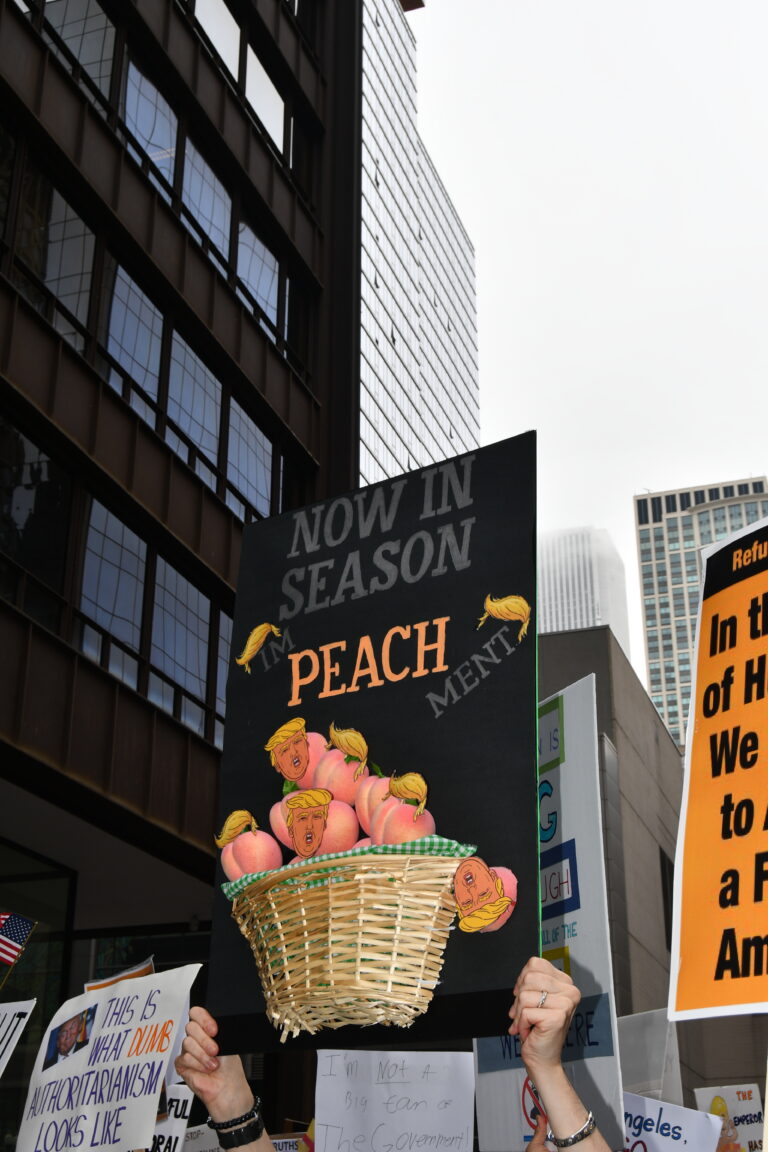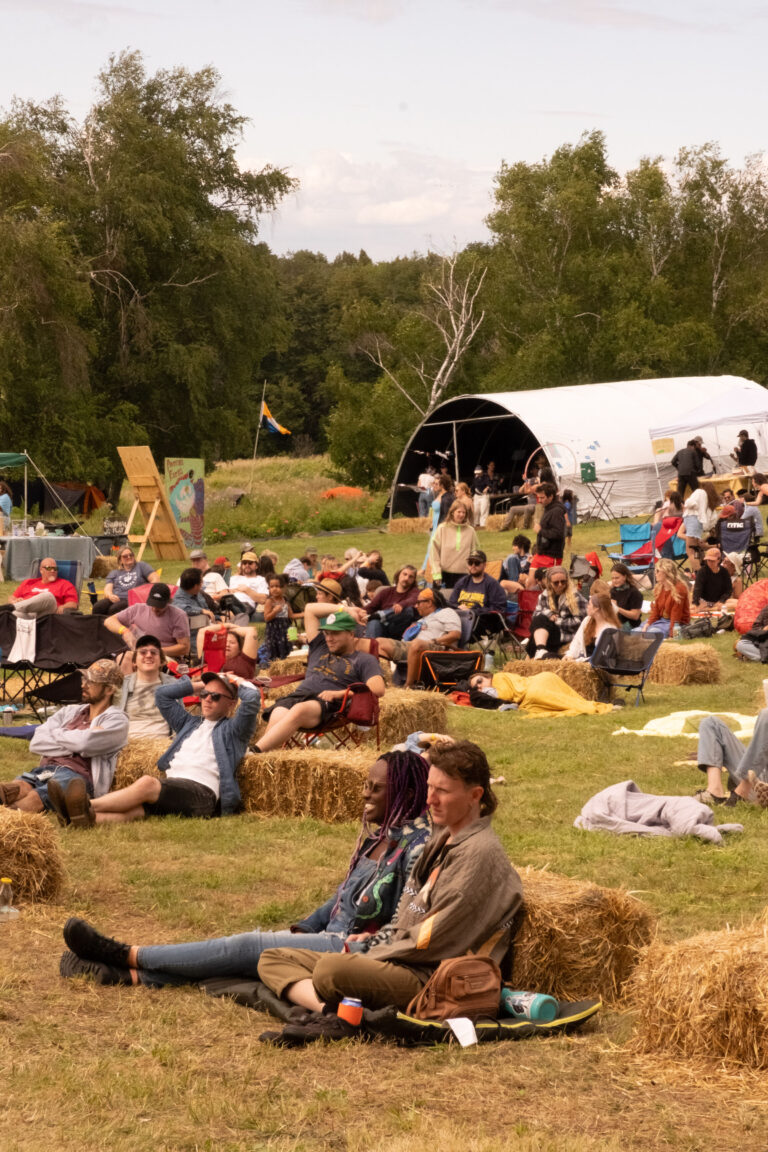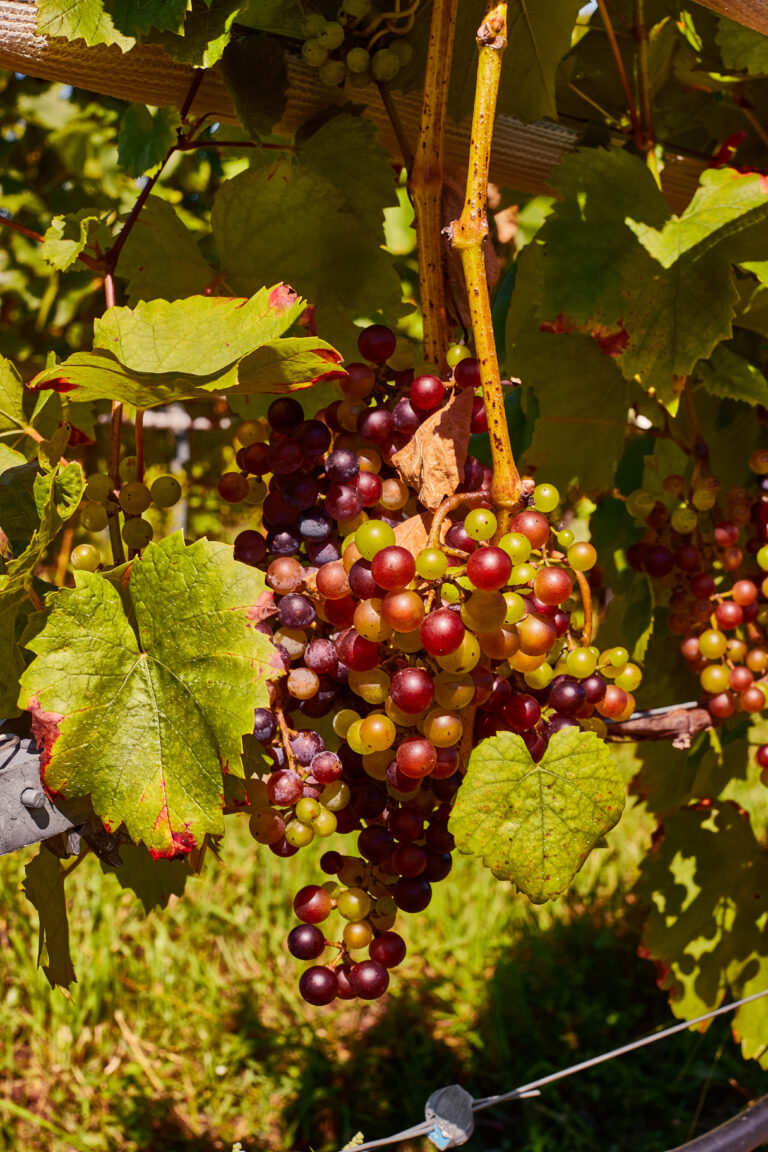
Beyond Dim Sum: Rediscovering Chicago’s Evolving Chinatown
One of my favorite Chinese proverbs states: love and food will never fail you. Whether it’s home cooking, street food, or fine dining, food is essential to China’s community culture, both domestically and abroad. In Chicago, there’s no better place to savor the authentic Chinese food culture than in Chinatown.
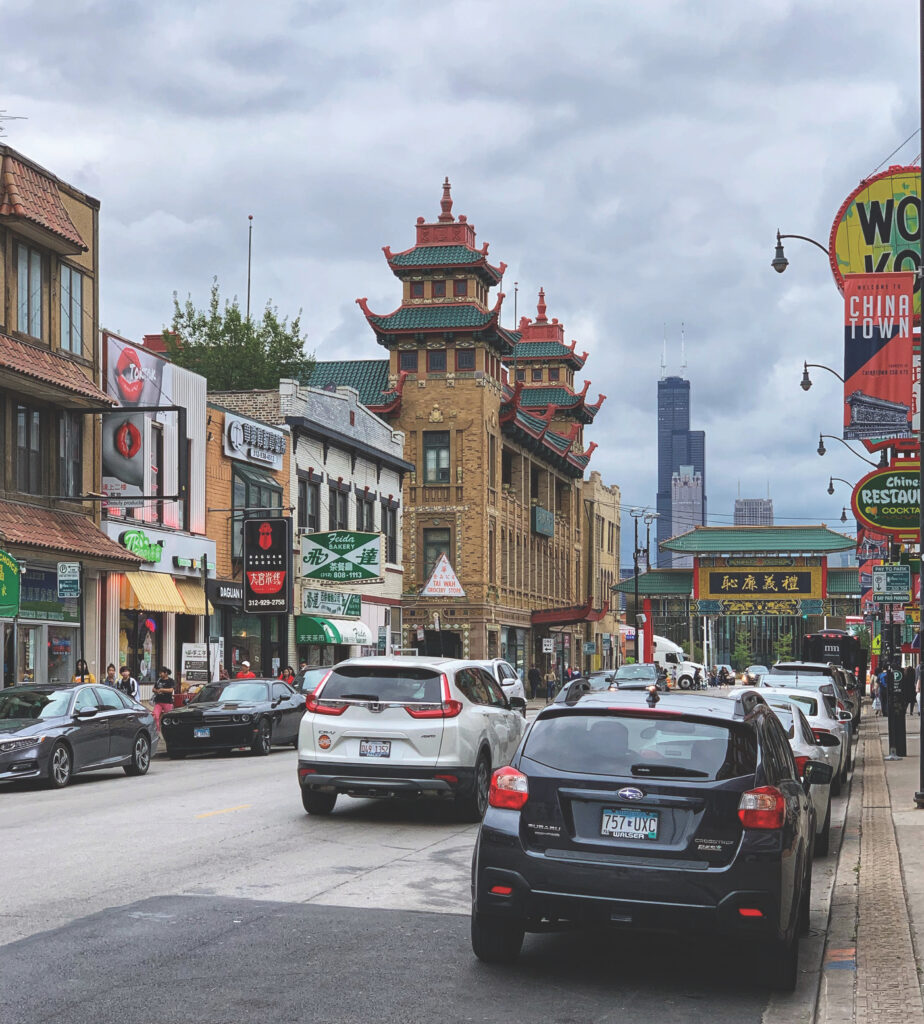
For a long time, Chicago’s perception of Chinatown centered on Zodiac Plaza and the gateway. Fortunately, in recent years, many visitors have become more adventurous, exploring the area’s lesser-walked streets such as 88 Market at Jefferson, S. Archer Ave beyond Canal St, and the deeper end of Wentworth Ave.
While some still view Chinatown as the perfect spot for boba tea and dim sum, the neighborhood has evolved alongside Chicago’s culinary scene, embracing the latest dining trends while holding China’s food and community values at its core. Stop by one (or a few!) of these restaurants and bars to experience China’s dining culture with your soul.
Mrs. Gu Skewers Hot Pot
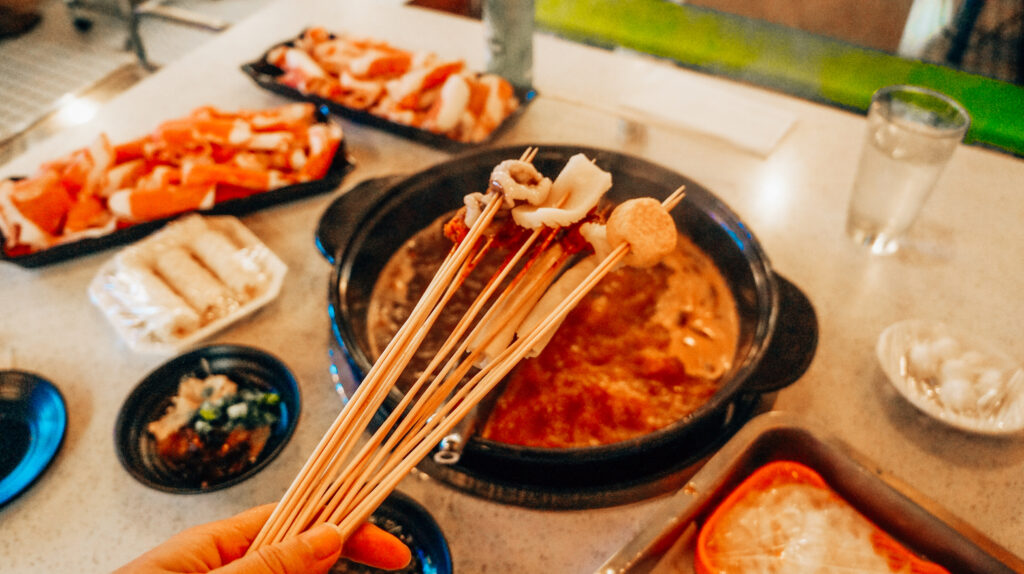
Growing up in China, I celebrated most significant moments with friends at Da Pai Dangs: streetside diners and food halls set in a canteen environment. Devoid of stunning interiors, elevated service, and hand-crafted presentations, Da Pai Dangs prioritize relaxation and community.
Mrs. Gu Skewers Hot Pot is the only place in Chicago that has fully recreated that environment for me. Here, you have full control over your dining experience. Choose your broth and sides using their QR code menu, and pick whatever you want from the coolers in the back. Create personal dipping sauces using their sauce and topping bar, containing everything from basic soy sauce to more adventurous flavors like fermented tofu.
For the Chinese diaspora like myself, Mrs. Gu is nostalgic. For those unfamiliar with this culinary tradition, Mrs. Gu offers an engaging and authentic Chinese experience. If you have the time, ask a Chinese-speaking friend or a server to translate Mrs. Gu’s story from the blackboard in the restaurant. It’s a heartwarming story about how an ordinary woman selling BBQ skewers back in Chengdu, China, shaped a generation’s memory and how that memory became a timeless icon for communal dining and collective experiences.
Nine Bar
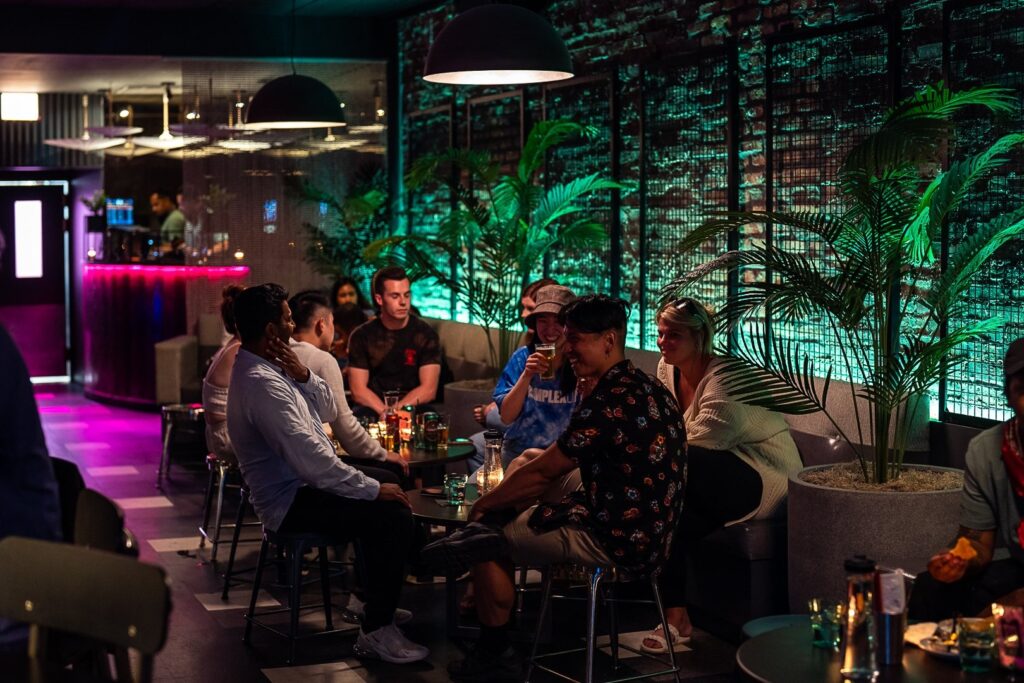
A speakeasy in Chinatown? Yes. Situated behind Moon Palace Express, a Chinese takeout counter, Nine Bar is a literal “hidden gem” of Chinatown. Co-founder Lily Wang, alongside Joe Briglio, opened Nine Bar to fill a void she noticed in Chinatown’s nightlife scene. “So much of the American ‘going out’ culture revolves around drinking. If people want to continue their night by grabbing a drink, then they have to leave the neighborhood, and that always made me feel like something was missing from the area,” Wang shared.
Nine Bar also carries a beautiful family story. Moon Palace Express, the “front,” was owned by Wang’s parents for decades. As they aged, they considered opportunities to step away from the physical demands of operating a restaurant. At the same time, the pandemic made restaurant operations more challenging. While a speakeasy concept wasn’t initially in the plan for Wang and Briglio, the model simply made sense as a way to preserve a Chinatown staple and fill the gap in Chinatown’s nightlife scene.
Nine Bar breaks from the all-too-familiar story of younger generations opting to step away from family businesses and instead shows that with creativity, there is a future for family-owned hospitality businesses. It demonstrates that Chinatown’s younger generations are creating new waves in the neighborhood. Instead of ‘growing out’ of Chinatown, business owners like Wang hope to bring more visitors to the neighborhood while continuing to build the local community.
HOLU
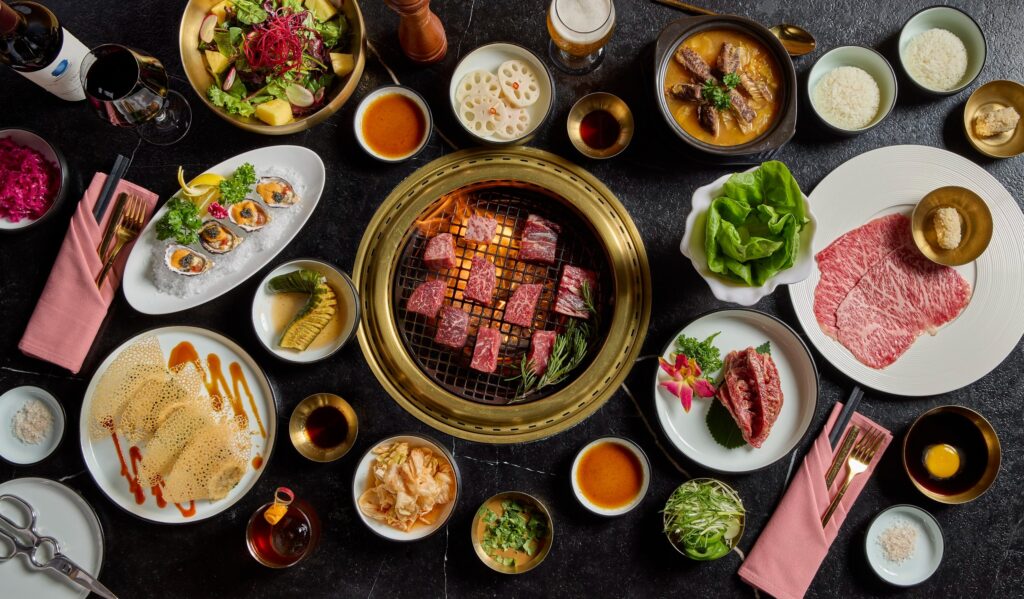
Chinatown stretches beyond Cermak and Wentworth. On the other side of the neighborhood, adjacent to Pilsen, sits 88 Market, a newer Chinatown destination. Among the many businesses within the marketplace is HOLU, an Asian restaurant dedicated to providing a high-end dining experience while inheriting traditional Chinese hospitality. Think A5 Wagyu, dry-aged steaks, premium seafood, and farm-to-table microgreens – yes, Chinatown has an upscale dining destination.
Like many other Chicago restaurants, HOLU is dedicated to building partnerships with the local community and rebukes the assumption that Chinatown restaurants rarely work with smaller, local suppliers. HOLU sources from Closed Loop Farms, an urban farm in Chicago’s Back of the Yards neighborhood on the South Side of Chicago. The farm grows microgreens year-round, as well as edible flowers, herbs, baby greens, as well as produce on their quarter-acre farm during the outdoor growing season. The restaurant also sources a variety of gourmet mushrooms from Four Stars Mushrooms, a Chicago producer dedicated to developing a more sustainable food system.
From a replica of China’s iconic streetside dining to elevated fine dining, Chinatown has much to offer. As the Chinese saying goes, food is people’s heaven. It brings hope, growth, and positivity and offers comfort, healing, and peace. Rediscovering Chinatown goes beyond uncovering hidden gems with good food and tasty drinks. It’s rediscovering those who live and work there, along with their efforts in developing the community. We look forward to the day when people head to Chinatown for a good cocktail, an anniversary dinner, a karaoke party, or simply for the atmosphere. Chinese culture, at large, is reserved. But it is always willing to show its full beauty to kindred spirits.

